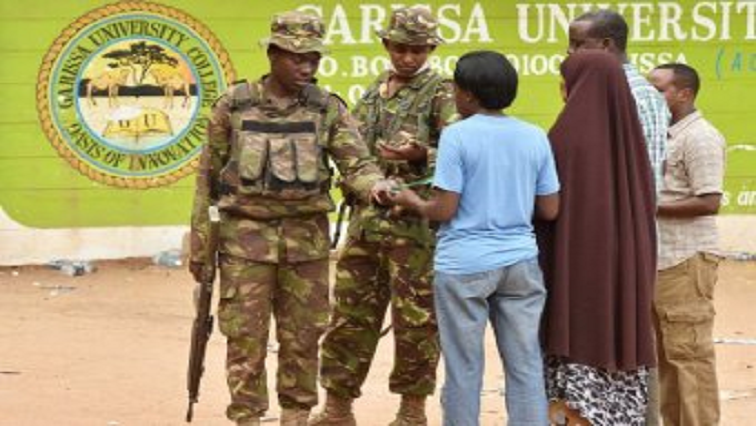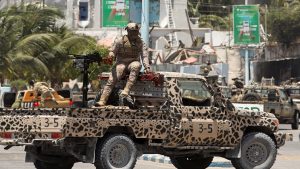A Nairobi court on Wednesday found three men guilty of abetting Somali jihadists who carried out a 2015 attack on Garissa University in northeast Kenya in which 148 people were killed.
A fourth individual was acquitted, Judge Francis Andayi said, adding that sentencing will be handed down on July 3.
The April 2 2015 attack was carried out by four gunmen from al-Shabaab, a Somali jihadist group linked to al-Qaeda.
Most of those who died were students, who were slain in their dormitories or rounded up and executed in a hall of residence. The assailants first separated the victims according to their religion, letting Muslims go but keeping the others, most of whom were Christians.
It was the second-bloodiest terror attack in Kenya’s history, surpassed only by al-Qaeda’s bombing of the US embassy in Nairobi in 1998 that killed 213 people. That attack was claimed by al-Qaeda.
Andayi said the three, Kenyans Mohamed Ali Abikar, Hassan Edin Hassan and Rashid Charles Mberesero, a Tanzanian, “were members of the al-Shabaab terrorist group whose members carried out the attack.”
Prosecutors had proven “beyond reasonable doubt” that “they knew the plot,” he said, but did not give further details of the alleged conspiracy.
The three convictions are the first to result from a long-running investigation and prosecution. All four gunmen were killed by security forces. The operation’s suspected ringleader, Mohamed Mohamud, also named “Kuno,” a former professor at a Koranic school in Garissa, was killed in south-western Somalia in 2016.
The Shabaab said he had been killed by “US crusaders.”
The group is fighting to overthrow the internationally backed government in Mogadishu. But it also regularly carries out attacks in neighbouring Kenya, which has troops in Somalia as part of an African Union force.
In January 2016, al-Shabaab overran a Kenyan army outpost at El-Adde in southern Somalia. Some estimates say that as many as 180 soldiers died. The security response to Garissa was strongly criticised by many Kenyans. It took 16 hours for a special anti-terror unit to bring the attack to an end, their deployment slowed by a senior police officer who had commandeered the force’s plane for a family excursion.






